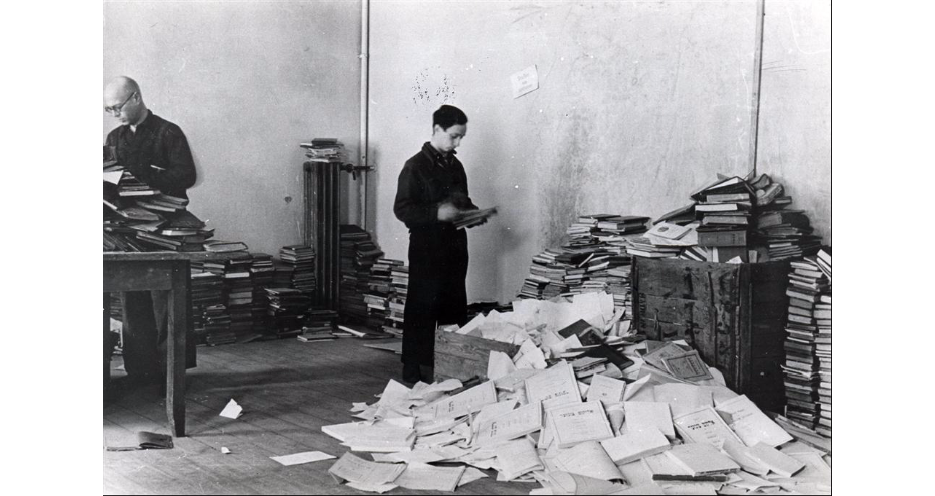The National Library of Israel plans to digitize a collection of documents that belonged to the Yiddish poet Abraham Sutzkever, who experienced the horrors of the Holocaust in the Vilna Ghetto.
Most of the Vilna Ghetto’s Jews were killed by the Nazis, but thanks to Abraham Sutzkever, some of the ghetto’s rich cultural life was preserved. Sutzkever, along with fellow poet Abba Kovner and other intellectuals, worked tirelessly to make sure the memory of ghetto’s community would live on by collecting documents. Sutzkever managed to preserve the documents from the Vilna Ghetto using a tin suitcase he assembled after he fled the city.
“The contents of the suitcase provide unique insight into what went on in ghetto. … It shows how people led their lives under the shadow of death,” Gil Weissblei, who works in the library’s Archives Department, told Israel Hayom.
Despite the hardships, the ghetto had a vibrant community that attended concerts and lectures, provided education to its youths, and maintained a functioning library.
“The documents indicate that as things deteriorated and food became scarce, people began to read more books,” Weissblei said. “It was a very moving discovery for me, as a human being.”
Sutzkever would later join the United Partisan Organization, an underground Jewish movement known as the FPO, which operated in the ghetto and in forests around Vilna. The organization frequently attacked Nazi targets, and in 1944 it took part in the Soviet liberation of the city. In those forests, Sutzkever found the scrap metal to build a suitcase, repurposing what was left of a downed aircraft.
By: JNS.org and United With Israel Staff
Do You Love Israel? Make a Donation - Show Your Support!
Donate to vital charities that help protect Israeli citizens and inspire millions around the world to support Israel too!
Now more than ever, Israel needs your help to fight and win the war -- including on the battlefield of public opinion.
Antisemitism, anti-Israel bias and boycotts are out of control. Israel's enemies are inciting terror and violence against innocent Israelis and Jews around the world. Help us fight back!

